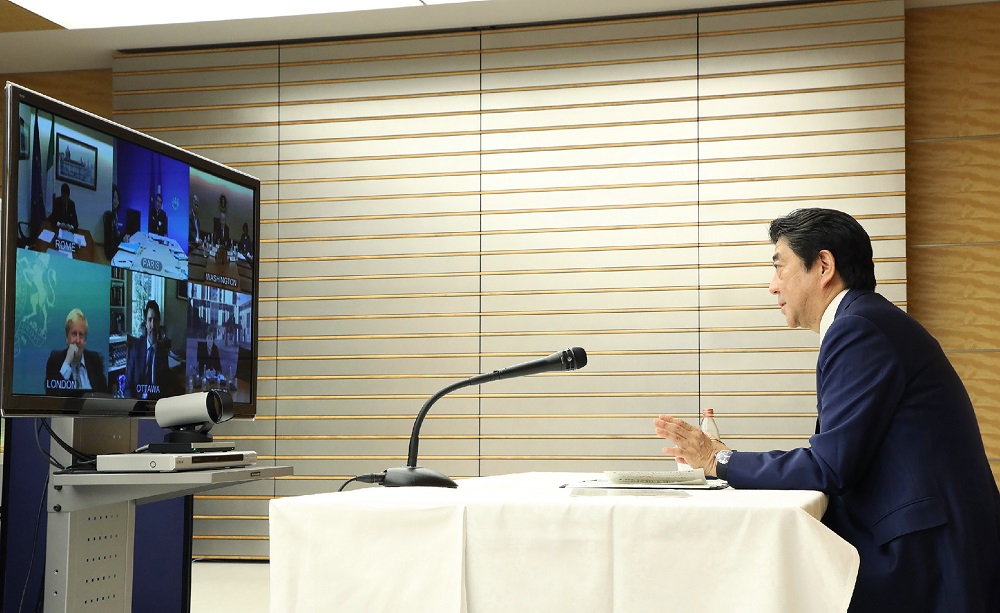
- ARAB NEWS
- 13 Jul 2025

TOKYO: The worldwide spread of the new coronavirus has been affecting diplomatic events, with some upcoming international meetings postponed to later dates.
Meanwhile, a meeting of the foreign ministers of the Group of Seven major industrial nations, which had initially been scheduled to take place in Pittsburgh next Tuesday and Wednesday, has been rearranged to be held by videoconference amid the continuing outbreak of the virus.
Earlier this month, leaders of the G-7 nations -- Britain, Canada, France, Germany, Italy, Japan and the United States -- held a videoconference, which was also joined by representatives of the European Union. This was the first G-7 summit held by videoconference.
"It's true that problems have occurred as a result of major international meetings not being held (as scheduled) around the world," Japanese Foreign Minister Toshimitsu Motegi told a parliamentary committee meeting Thursday.
The series of postponements of international meetings came as many countries have introduced entry restrictions on foreigners and imposed restraints on large-scale events to prevent the virus from spreading further.
When multilateral conferences, including leaders' meetings such as summits of the G-7 nations and the Group of 20 advanced and emerging economies, are held, a string of bilateral meetings and dinner parties take place as well, allowing participants to deepen discussions or friendship.
But videoconferences involve no such bilateral sessions or welcome events, leading a Japanese government official to say, "Precious opportunities for national leaders to deepen their personal relationships by, for example, talking about hobbies, have now been lost."
A senior Japanese Foreign Ministry official voiced frustration at the latest videoconference among the G-7 leaders, which lasted for only about 50 minutes. "Meeting directly and talking over time" is far more better than a videoconference, the official said.
Furthermore, a multilateral videoconference involves difficulties setting the time of the session.
The G-20 economies are planning to hold a videoconference among their leaders later this month.
At issue here are large time gaps as the member economies are located in different regions, such as North America, Europe and Asia.
With members from Europe and the Americas making up the largest group, the G-20 videoconference, to be hosted by Saudi Arabia, will likely be scheduled at a time convenient for them.
This means that the video conference will come at an inconvenient time for Japan, late at night or before dawn. "We are outnumbered," the Japanese ministry official said helplessly.
The G-20 members include the G-7 nations, Australia, Brazil, China, Russia, South Africa and the EU.
JIJI Press